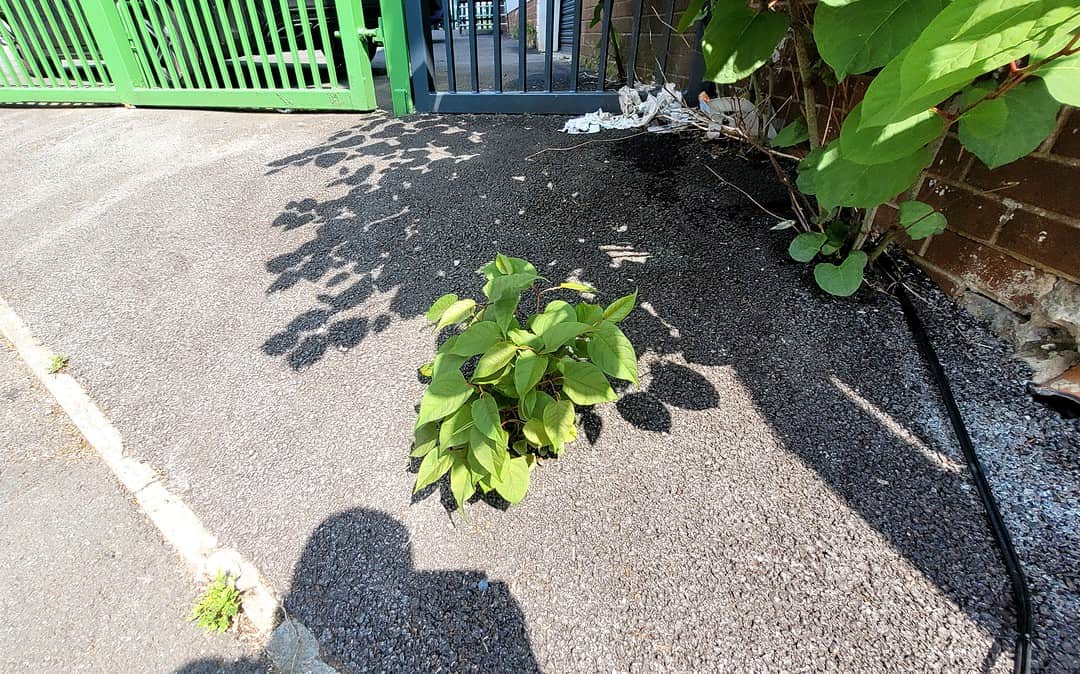How deep do Japanese knotweed roots go?
I was wondering how deep Japanese knotweed roots go.
The roots, also known as rhizomes, can grow deep into the ground. They can reach depths of up to 3 meters (10 feet) and spread laterally up to 7 meters (23 feet) from the parent plant. These profound and far-reaching root systems make removing the plant’s underground structures difficult. It’s essential to have a professional treatment plan in place to ensure that all the rhizomes are treated and the infestation is effectively managed. Remember, it’s illegal to bury or burn it on site, and it needs to be disposed of at a licensed landfill site
known as a rhizome.
Japanese knotweed roots, also known as rhizomes, can grow deep into the ground, typically reaching depths up to 3 meters (10 feet). The rhizomes can spread laterally up to 7 meters (23 feet) from the parent plant and can also grow vertically. These deep and extensive root systems make removing all of the plant’s underground structures difficult, which can cause it to regrow if not appropriately treated.
Rhizomes can remain Dormant.
It’s important to note that the rhizomes can remain dormant for several years but still sprout new growth. A professional treatment plan is essential to ensure that all the rhizomes are treated and the infestation is effectively managed.
It’s also important to remember that Japanese knotweed is controlled waste and must be disposed of at a licensed landfill site. It’s illegal to bury or burn it on site, and anyone who fails to comply with these regulations can face fines or imprisonment.
Rhizomes are strong and vigorous.
Japanese knotweed (Fallopia japonica) is known for its robust and aggressive growth, including its ability to spread through its rhizomes (underground stems). These rhizomes are exceptionally hardy and can grow through various soil types, including clay. Clay soils are typically dense and can be challenging for the roots of many plants to penetrate. However, Japanese knotweed’s rhizomes are strong and vigorous enough to push through less permeable soils, including clay, although their growth rate might be somewhat slower in dense clay compared to looser soil types.
The strength of Japanese knotweed lies in its persistence and ability to exploit any cracks or weaknesses in the soil or artificial structures. Even in clay soils, knotweed can spread if there are small fissures or variations in soil density. Once established, it can be challenging to eradicate due to its deep and extensive rhizome system, which can grow several meters deep and horizontally.
Japanese knotweed rhizomes, like the rhizomes of other plants, are composed of several key components:
- Cells and Tissues: The rhizomes comprise plant cells and tissues, including the xylem and phloem. Xylem helps transport water and minerals from the soil to the rest of the plant, while phloem distributes sugars and other nutrients.
- Starch Reserves: Rhizomes store starch and other carbohydrates that the plant uses for energy during growth and reproduction. This energy reserve is a crucial reason why Japanese knotweed can proliferate and resprout so quickly after attempts to remove or destroy it.
- Water: A significant portion of the rhizome’s mass is water, which helps maintain cell structure and function.
- Fibrous Material: Rhizomes contain fibre, giving them strength and resilience. This material includes lignin and cellulose, which contribute to the rhizome’s ability to penetrate soil and even hard surfaces like concrete and asphalt.
- Growth Nodes: Rhizomes have growth nodes at intervals, from which new shoots can emerge. These nodes are crucial for the plant’s ability to spread and propagate.
- Bioactive Compounds: Japanese knotweed rhizomes contain several bioactive compounds, including resveratrol, also found in grapes and red wine and has been researched for its potential health benefits.
These components enable the rhizomes to function as underground stems, supporting the plant’s growth, reproduction, and survival. Japanese knotweed rhizomes’ ability to store energy and grow under various conditions makes the plant both a successful coloniser and a challenging invasive species to control.
